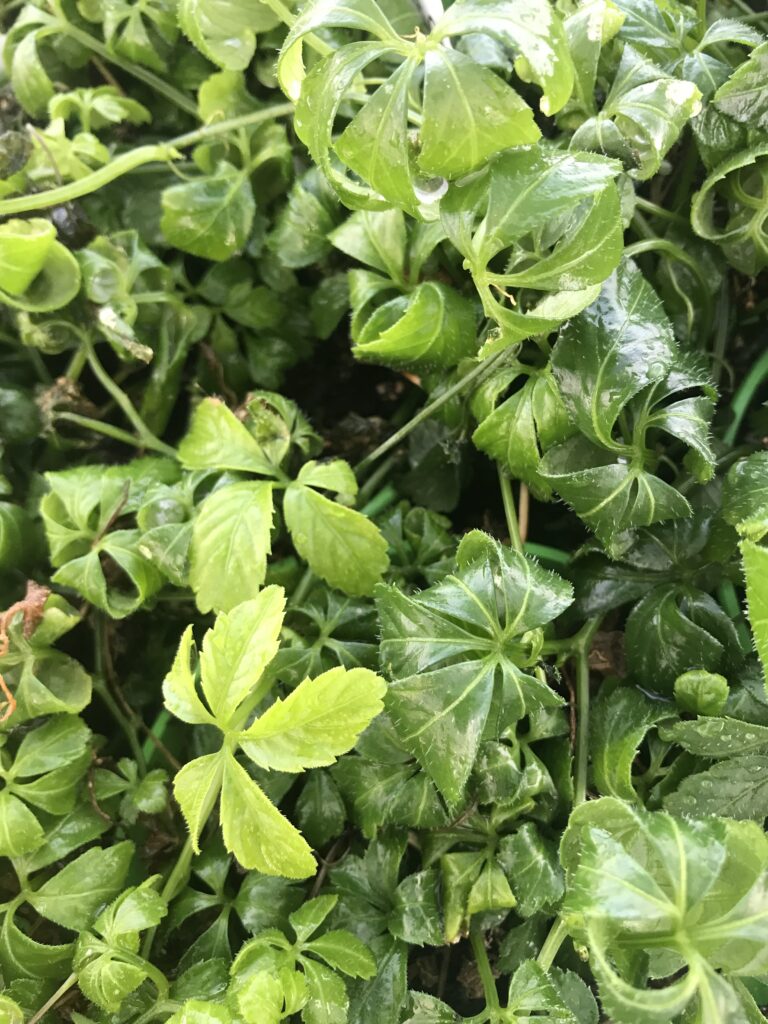Jiaogulan, a five-leaf, climbing vine of the cucumber/gourd family, is indigenous to China and other Asian nations, and literally means “twisting blue plant.” Common names include five-leaf ginseng, poor man’s ginseng, miracle grass, fairy herb, sweet tea vine, gospel herb, and southern ginseng. While the fruit is inedible, the herb is sold as a tea, powder, or capsule for health conditions that include obesity, diabetes, high cholesterol, anxiety, and liver damage. Additionally, jiaogulan is known as the “immortality herb” because a large number of elderly people within the Guizhou Province reported consuming the plant regularly.
While Jiaogulan is generally considered safe, one can expect increased bowl movements when taking this herb (this can be a good thing!) Those with lupus, multiple sclerosis, and rheumatoid arthritis may want to use this herb with caution, as it tends to stimulate the immune system. As a potential blood-thinner, jiaogulan should be avoided by those already on blood-thinning drugs, or who plan on undergoing surgery. Diabetics on insulin should also be aware that jiaogulan may lower blood sugar, and should only be taken under a doctor’s supervision.
In most temperate climates it is an annual and favors well-drained soil with full sun. It does not grow well in cold climates with temperatures below freezing, making it an ideal plant for Arizona! The plant is dioecious, meaning that each plant exists either as male or female. In other words, if seeds are desired, both a male and female plant must be grown in close proximity (i.e., buy at least a couple of plants and hope for the best!)
Resources:
https://en.wikipedia.org/wiki/Gynostemma_pentaphyllum
https://www.verywellhealth.com/the-lowdown-on-jiaogulan-88940

